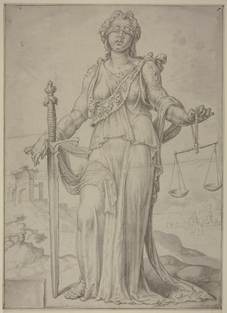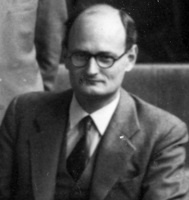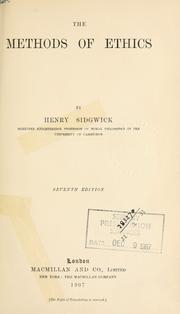Related Research Articles

Consequentialism is a class of normative, teleological ethical theories that holds that the consequences of one's conduct are the ultimate basis for judgment about the rightness or wrongness of that conduct. Thus, from a consequentialist standpoint, a morally right act is one that will produce a good outcome. Consequentialism, along with eudaimonism, falls under the broader category of teleological ethics, a group of views which claim that the moral value of any act consists in its tendency to produce things of intrinsic value. Consequentialists hold in general that an act is right if and only if the act will produce, will probably produce, or is intended to produce, a greater balance of good over evil than any available alternative. Different consequentialist theories differ in how they define moral goods, with chief candidates including pleasure, the absence of pain, the satisfaction of one's preferences, and broader notions of the "general good".

Ethics or moral philosophy is a branch of philosophy that "involves systematizing, defending, and recommending concepts of right and wrong behavior". The field of ethics, along with aesthetics, concerns matters of value; these fields comprise the branch of philosophy called axiology.

Jurisprudence, or legal theory, is the theoretical study of the propriety of law. Scholars of jurisprudence seek to explain the nature of law in its most general form and provide a deeper understanding of legal reasoning and analogy, legal systems, legal institutions, and the proper application and role of law in society.

Justice, in its broadest sense, is the principle that people receive that which they deserve, with the interpretation of what then constitutes "deserving" being impacted upon by numerous fields, with many differing viewpoints and perspectives, including the concepts of moral correctness based on ethics, rationality, law, religion, equity and fairness. The state will sometimes endeavour to increase justice by operating courts and enforcing their rulings.

In metaphilosophy and ethics, meta-ethics is the study of the nature, scope, and meaning of moral judgment. It is one of the three branches of ethics generally studied by philosophers, the others being normative ethics and applied ethics.
Normative ethics is the study of ethical behaviour, and is the branch of philosophical ethics that investigates the questions that arise regarding how one ought to act, in a moral sense.
Utilitarianism is a family of normative ethical theories that prescribe actions that maximize happiness and well-being for all affected individuals.

The just war theory is a doctrine, also referred to as a tradition, of military ethics which is studied by military leaders, theologians, ethicists and policy makers. The purpose of the doctrine is to ensure that a war is morally justifiable through a series of criteria, all of which must be met for a war to be considered just. The criteria are split into two groups: "right to go to war" and "right conduct in war" . The first group of criteria concerns the morality of going to war, and the second group of criteria concerns the moral conduct within war. There have been calls for the inclusion of a third category of just war theory dealing with the morality of post-war settlement and reconstruction. The just war theory postulates the belief that war, while it is terrible but less so with the right conduct, is not always the worst option. Important responsibilities, undesirable outcomes, or preventable atrocities may justify war. Opponents of the just war theory may either be inclined to a stricter pacifist standard or they may be inclined toward a more permissive nationalist standard. In many cases, philosophers state that individuals do not need to be plagued by a guilty conscience if they are required to fight. A few philosophers ennoble the virtues of the soldier while they also declare their apprehensions for war itself. A few, such as Rousseau, argue for insurrection against oppressive rule.
Anarcho-pacifism, also referred to as anarchist pacifism and pacifist anarchism, is an anarchist school of thought that advocates for the use of peaceful, non-violent forms of resistance in the struggle for social change. Anarcho-pacifism rejects the principle of violence which is seen as a form of power and therefore as contradictory to key anarchist ideals such as the rejection of hierarchy and dominance. Many anarcho-pacifists are also Christian anarchists, who reject war and the use of violence.

Saul David Alinsky was an American community activist and political theorist. His work through the Chicago-based Industrial Areas Foundation helping poor communities organize to press demands upon landlords, politicians and business leaders won him national recognition and notoriety. Responding to the impatience of a New Left generation of activists in the 1960s, in his widely cited Rules for Radicals: A Pragmatic Primer (1971) Alinsky defended the arts both of confrontation and of compromise involved in community organizing as keys to the struggle for social justice.

Richard Mervyn Hare, usually cited as R. M. Hare, was a British moral philosopher who held the post of White's Professor of Moral Philosophy at the University of Oxford from 1966 until 1983. He subsequently taught for a number of years at the University of Florida. His meta-ethical theories were influential during the second half of the twentieth century.

Divine command theory is a meta-ethical theory which proposes that an action's status as morally good is equivalent to whether it is commanded by God. The theory asserts that what is moral is determined by God's commands and that for a person to be moral he is to follow God's commands. Followers of both monotheistic and polytheistic religions in ancient and modern times have often accepted the importance of God's commands in establishing morality.

Ted Honderich is a Canadian-born British professor of philosophy, who was Grote Professor Emeritus of the Philosophy of Mind and Logic, University College London.
Discourse ethics refers to a type of argument that attempts to establish normative or ethical truths by examining the presuppositions of discourse. Variations of this argument have been used in the establishment of egalitarian ethics, as well as libertarian ethics.
Secular ethics is a branch of moral philosophy in which ethics is based solely on human faculties such as logic, empathy, reason or moral intuition, and not derived from belief in supernatural revelation or guidance—the source of ethics in many religions. Secular ethics refers to any ethical system that does not draw on the supernatural, and includes humanism, secularism and freethinking. A classical example of literature on secular ethics is the Kural text, authored by the ancient Tamil Indian philosopher Valluvar.

Kantian ethics refers to a deontological ethical theory developed by German philosopher Immanuel Kant that is based on the notion that: "It is impossible to think of anything at all in the world, or indeed even beyond it, that could be considered good without limitation except a good will." The theory was developed as a result of Enlightenment rationalism, stating that an action can only be right if its maxim—the principle behind it—is duty to the moral law, and arises from a sense of duty in the actor.

The Methods of Ethics is a book on ethics first published in 1874 by the English philosopher Henry Sidgwick. The Stanford Encyclopedia of Philosophy indicates that The Methods of Ethics "in many ways marked the culmination of the classical utilitarian tradition." Noted moral and political philosopher John Rawls, writing in the Forward to the Hackett reprint of the 7th edition, says Methods of Ethics "is the clearest and most accessible formulation of ... 'the classical utilitarian doctrine'". Contemporary utilitarian philosopher Peter Singer has said that the Methods "is simply the best book on ethics ever written."
Feminist ethics is an approach to ethics that builds on the belief that traditionally ethical theorizing has undervalued and/or underappreciated women's moral experience, which is largely male-dominated, and it therefore chooses to reimagine ethics through a holistic feminist approach to transform it.
Political ethics is the practice of making moral judgements about political action and political agents. It covers two areas. The first is the ethics of process, which deals with public officials and their methods. The second area is the ethics of policy, which concerns judgments surrounding policies and laws.

In religion, ethics, philosophy, and psychology "good and evil" is a very common dichotomy. In cultures with Manichaean and Abrahamic religious influence, evil is usually perceived as the dualistic antagonistic opposite of good, in which good should prevail and evil should be defeated. In cultures with Buddhist spiritual influence, both good and evil are perceived as part of an antagonistic duality that itself must be overcome through achieving Śūnyatā meaning emptiness in the sense of recognition of good and evil being two opposing principles but not a reality, emptying the duality of them, and achieving a oneness.
References
- ↑ Rapoport, David C.; Alexander, Yonah, eds. (1989). The Morality of terrorism: religious and secular justifications . Columbia University Press. p. 383. ISBN 978-0-231-06752-2.
- ↑ Pottenger, John R. (1989). The political theory of liberation theology: toward a reconvergence of social values and social science. SUNY Press. p. 146. ISBN 978-0-7914-0118-7.
- ↑ Kallis, Aristotle A. (2000). Fascist ideology: territory and expansionism in Italy and Germany, 1922-1945. Psychology Press. p. 39. ISBN 978-0-415-21611-1.
- ↑ Alinsky, Saul. Rules for Radicals. Random House. ISBN 0-394-44341-1.